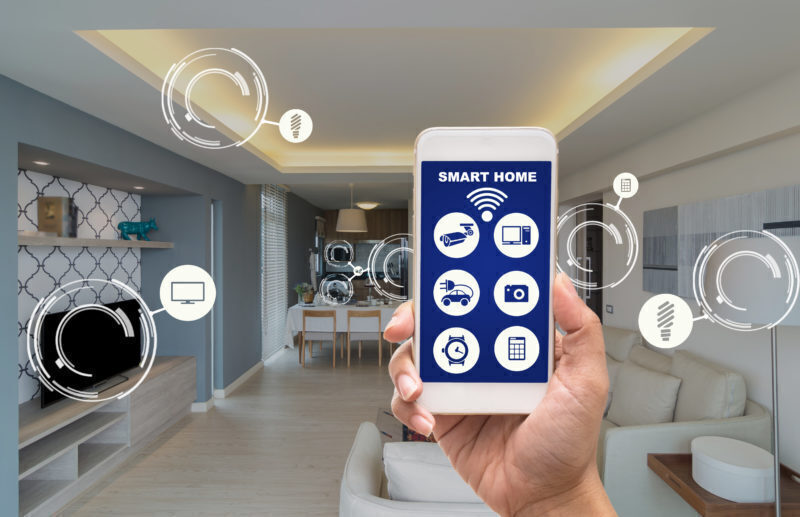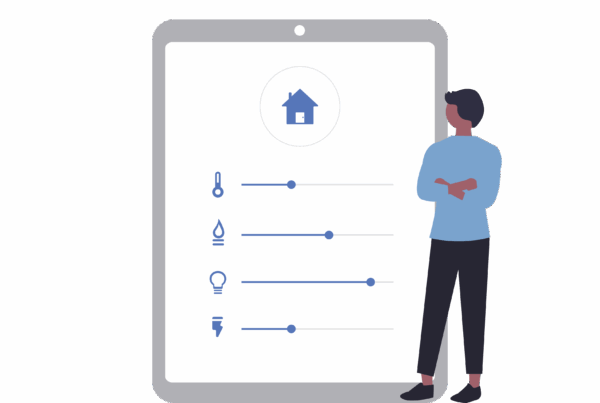
In an increasingly digital world, our homes are no longer just bricks and mortar. They have become interconnected ecosystems, where technology seamlessly integrates with our daily lives. Smart homes, once a futuristic concept, have now become a reality for many. From voice-activated assistants to automated security systems, these homes are transforming the way we live. In this article, we delve into the world of smart homes and explore how they are reshaping the future of living.
A Symphony of Connected Devices
At the heart of a smart home lies the integration of various connected devices, working harmoniously to create an intelligent living space. Imagine waking up to the gentle sound of your favorite playlist, as your smart lighting system gradually mimics the rising sun, gently coaxing you out of slumber. As you step into your kitchen, your smart coffee machine brews your morning cup precisely to your liking, while your refrigerator takes inventory and sends a shopping list to your smartphone. These devices communicate with one another, making your daily routine effortless and efficient.
Home Automation: Simplifying Daily Tasks
Smart homes offer a range of automation possibilities, simplifying daily tasks and freeing up our time for what truly matters. Automated thermostats adjust room temperature according to your preferences, optimizing energy consumption and keeping your home comfortable. With voice commands, you can control your lights, blinds, and even home entertainment systems, turning your living room into a personal theater with a simple phrase.
Beyond convenience, automation can also enhance home security. Smart locks provide keyless entry, granting access to trusted individuals and allowing you to monitor who comes and goes. Advanced security systems utilize motion sensors, video surveillance, and facial recognition to safeguard your home, sending real-time alerts to your smartphone if any suspicious activity is detected.
Energy Efficiency: A Sustainable Future
One of the most compelling aspects of smart homes is their ability to promote energy efficiency. By incorporating smart thermostats, lighting systems, and energy monitoring devices, homeowners can gain a greater understanding of their energy consumption patterns and make informed choices. For instance, smart thermostats learn your preferences and adjust temperature settings automatically, reducing unnecessary energy usage. Smart lighting systems utilize sensors to detect when a room is unoccupied, ensuring lights are switched off, and conserving electricity.
A Greener Home and Wallet
Beyond reducing our carbon footprint, energy-efficient homes can also lead to significant cost savings. Studies have shown that by adopting smart home technologies, homeowners can decrease their energy consumption by up to 30%. In addition, many utility providers offer incentives for energy-efficient homes, which can translate into substantial long-term savings.
Privacy and Security Concerns
While the benefits of smart homes are clear, it is essential to address the concerns surrounding privacy and security. With a vast amount of data being generated and shared within these connected ecosystems, it is crucial to implement robust security measures. Homeowners must choose reputable devices from trusted manufacturers, regularly update firmware, and secure their home networks with strong passwords and encryption.
Smart homes have evolved from futuristic dreams to everyday reality, transforming the way we live. With their seamless integration of devices and automation capabilities, they offer convenience, efficiency, and enhanced security. As we continue to embrace this technological revolution, it is essential to prioritize privacy and security to ensure a safe and reliable smart home experience. With the potential for energy savings and a sustainable future, smart homes are shaping the way we live, making our lives more connected, comfortable, and environmentally friendly. The future of living is here, and it’s smarter than ever.



